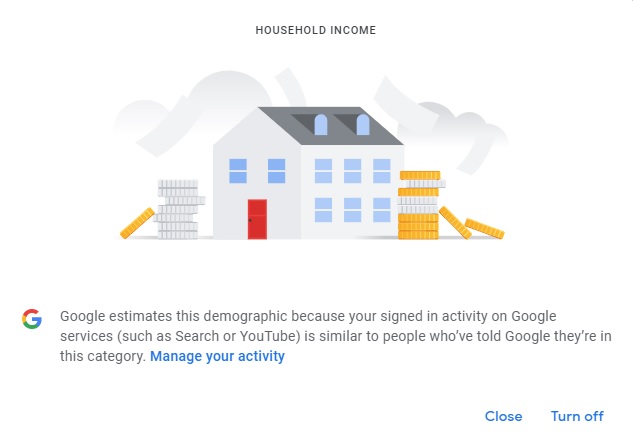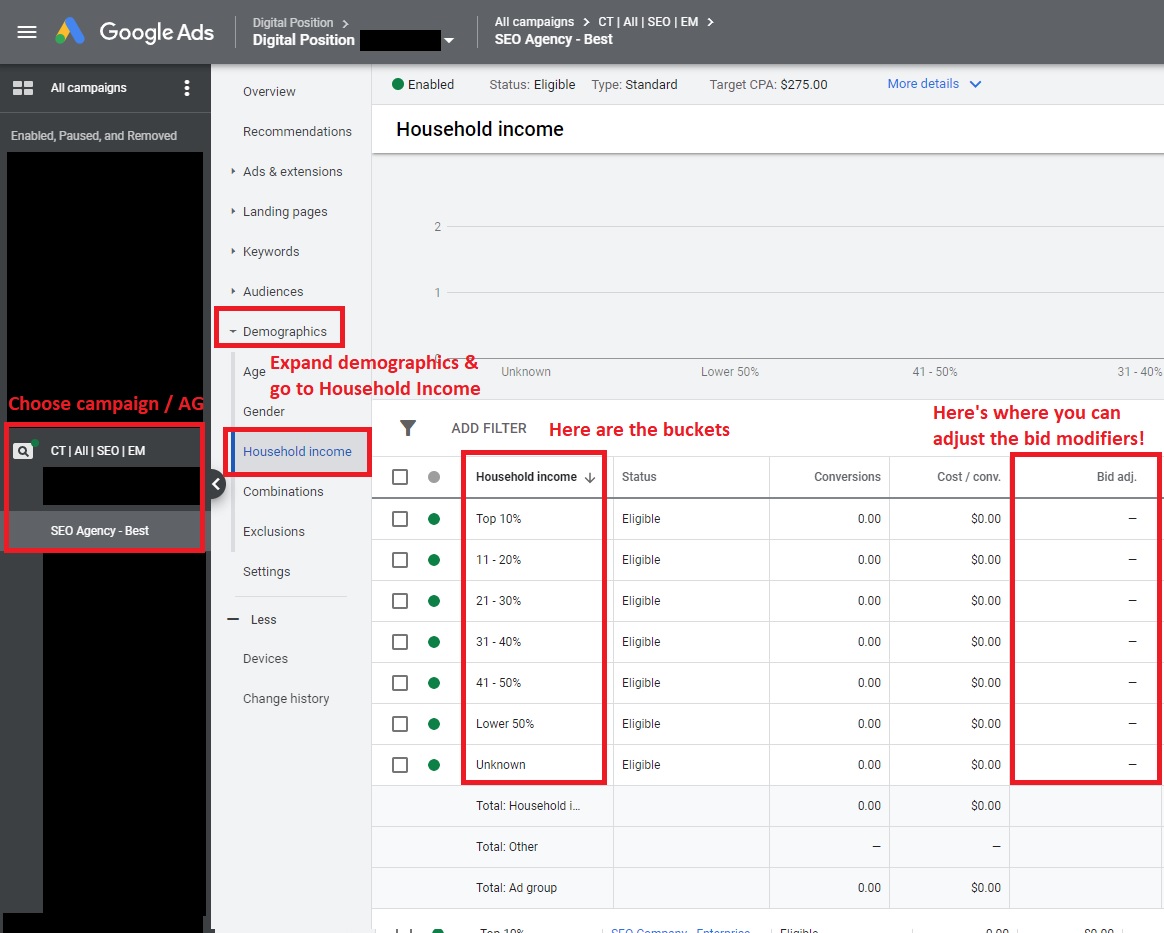
Google Merchant Center Classic Transitioning To Google Merchant Center Next
Joined Digital Position in
Bio
Skills
Fun Facts
Income targeting is one of the levers advertisers can use to improve campaign performance, just like gender, age group, device, time of day, and many more. Every signal helps us identify your best performing customers and adjust our campaigns to steer your dollars toward the audiences that drive the most revenue.
There has been a lot of controversy around how Google collects data, leading to its recent announcement that it will be phasing out browser cookies for ads. That said, Google will of course find a way around these limitations to ensure ads continue to perform well. Thus far, it seems income targeting will remain in place.
Income targeting is the ability to segment your Google Ads campaigns by specific groups based on the average income level they fall into. This targeting is split into 7 buckets, which are as follows:
Income targeting can be an extremely effective tool to help improve your account’s performance and should be utilized in almost every account.
And of course, we’ll take this opportunity to pause and say that if this all feels like a little much, there’s no smarter move than getting professionals involved!
Google does a terrible job in their documentation about this topic. They broadly define demographic targeting and how they collect the data.
The first thing to know is that historically, income targeting used to essentially be zip code targeting. Google would take census data and put zip codes into various buckets based on average incomes in the areas.
This lever has evolved though, just like most levers in Google Ads. It is now possible that two different website visitors in the same ZIP code can be bucketed into different income levels. Google has begun to take into account additional data such as:
If you go to the ad settings page on Google and look at your household income (if you’ve got ad personalization turned on), you can see what Google thinks about your income level and they even mention how they collect this data:

The short answer is “you don’t” anymore. It’s already “set up” by default, but you should look at the lever and adjust it over time if you’re using a manual bidding method. Otherwise, the algorithmic bidding will already take it into account like a Target CPA or Target ROAS.
Here’s where to find it (it’s on the Ad Group level):

If you have any questions or would like help with your Google Ads campaigns, we hope we’re the right PPC agency solution! Feel free to reach out to us and we’ll make sure your money isn’t being dumped down the drain.
You need someone in your corner willing to track, strategize, and, not just manage, but absolutely conquer your marketing. Luckily for you, that’s what we do best.
We’re ready when you are.
We eat, sleep, and breathe digital marketing and we love seeing others taking an interest in it too. Subscribe to our mailing list to get notifications about awesome new blog posts like this one (tastefully, we don't spam), or even just say hello in a comment on the post below!
no replies